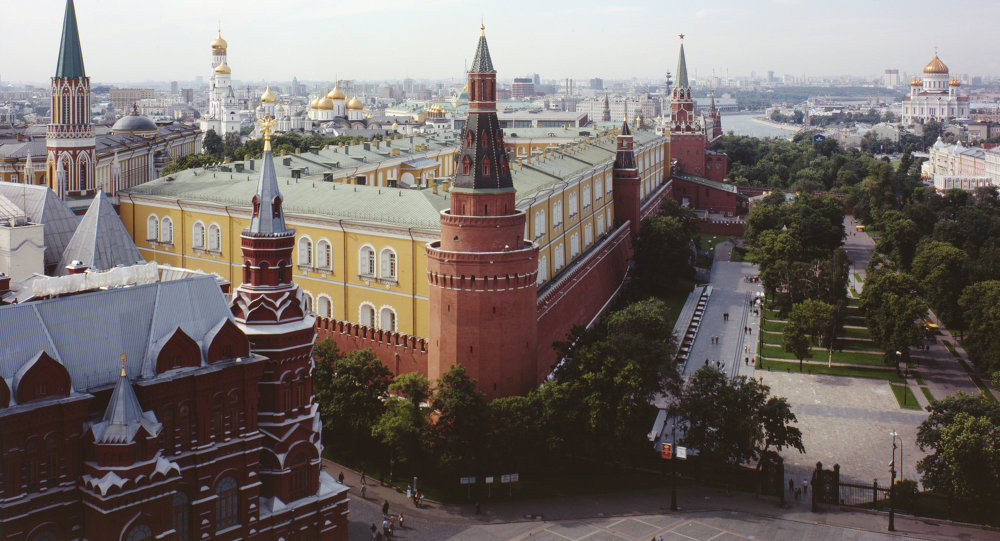Vesten er oppe i vandene på grund af Moskvas succes i dets brug af 'informationskrig.," og gør alt for at finde svaret på spørgsmålet om, hvordan man udmanøvrerer russiske medier i den internationale såvel som den regionale konkurrence.
Den nydeklarerede propagandakrig i år mod Rusland fra Washington og Bryssel, har endnu ikke bragt nogle nævneværdige resultater, og udsigten til, at den vil vise sig at være effektiv, er også lille.
Russiske mediekilder har rettet rampelyset mod krisen i Ukraine og hjulpet med ikke blot at forme russiske synspunkter af konflikten, men har også haft en effekt på "debatten i Vesteuropa og i USA," pointerer den amerikanske journalist Brittney Lenard.
Kommentar: Vi undskylder at vi ikke er istand til at oversætte hele artiklen, men vi må af og til ty til blot delvis at oversætte artikler for at få så meget som muligt ud til vores nordiske læsere. Hvis du har lyst til at hjælpe os med oversættelser så skriv blot til sott_da@sott.net
"Through social media, television, and billboards, Moscow has advanced its agenda in new and often sophisticated ways that bear little resemblance to the overdone propaganda of the Cold War," the journalist elaborated.
Indeed, Russia's media commitment to "questioning more" and "telling the untold" has already dealt a serious blow to those Western media outlets which are turning a blind eye to a number of Ukrainian issues regarded as "inconvenient" and diverting public attention from the actual problems of the post-Soviet country.
While the US and European media outlets and tabloids have never missed an opportunity to criticize Russia, focusing on its domestic affairs, Lenard accused Russia's media of covering the US' internal problems, namely, the Ferguson and the Baltimore riots.
On the other hand, according to the journalist, it is the Russian media's fault that Russian views of the West have recently reached its lowest points. However, the devil is always in the details. Lenard has apparently forgotten that the West has itself contributed to the situation a lot.
Comment: The West is responsible for the situation. Imagine this scenario:
A neighbor loads their guns and points them at your house. Their brother moves into the house next door from you, kicking the original occupant out. Now both of them begin screaming at the top of their lungs that you invaded the brother's house, which he actually stole. They offer no proof, but declare that they have no option but to punish you for your "aggression". They siphon the gas from your car, they steal your credit cards, and they continue to stockpile guns and ammo and point it at your bedroom window. Whenever you point out the obvious, even in a very polite and even-handed way, you are accused of using "propaganda" to justify your aggression.
To put this situation in even greater context, your neighbors just so happen to be on murder sprees, and the bodies are piled high throughout the neighborhood for everyone to see. So yes, Russian views of the West are probably very "low", as they should be.
The controversial role of Brussels and Washington in the February 2014 coup in Ukraine, carried out by ultra-nationalist militants, the West's attempts to silence Kiev's atrocities in eastern Ukraine and groundless finger-pointing at Moscow when the Malaysian MH17 flight was downed, have predictably alienated Russians from the West. Moreover, the call by retired US Army major general Robert H. Scales to "start killing more Russians," broadcasted by a US mainstream TV channel, has not made matters any better.
However, the West persists in blaming what it calls "the Russian propaganda," racking its brain ways to deal with this thorn in its side.
"Russian propaganda's power lies not only in its effect on its audience, however, but also in the uncomfortable position in which it puts the West," the journalist noted.
The West obviously cannot ban the Russian media sources, since it will be regarded as a blatant violation against the freedom of speech and expression of fundamental values, she stressed, adding that "by design or not, Moscow has succeeded in putting leaders and policymakers in Washington and Brussels in a serious bind."
As a part of the "information warfare," Western journalists and observers should "continue to push for access to conflict areas" in Ukraine, in order to "report the reality on the ground," the journalist underscored. The West should counter Russia "with the unvarnished truth" about what is going on in Ukraine, he believes. Although it may not lead to the results the West is expecting, the idea to expose the truth about the Ukrainian turmoil is undoubtedly a step in the right direction.




Kommentar: Folk i Vesten er ved at få øjnene op for at de bliver løjet til hele tiden af deres medier og politikere. Russisk medies success har meget at gøre med at de ofte tør stille kritiske spørgsmål og belyser de internationale konflikter med langt mere dybde, neutralitet, perspektiv og ikke mindst professionalisme.
Der er himmel til forskel fra de lukkede pressemøder som Obama holder, hvor alle spørgsmål og journalister er blevet saniteret på forhånd og så de åbne pressemøder som Putin holder, hvor den internationale presse er inviteret og hvor spørgsmål kan stilles frit uden at være blevet saniteret på forhånd.